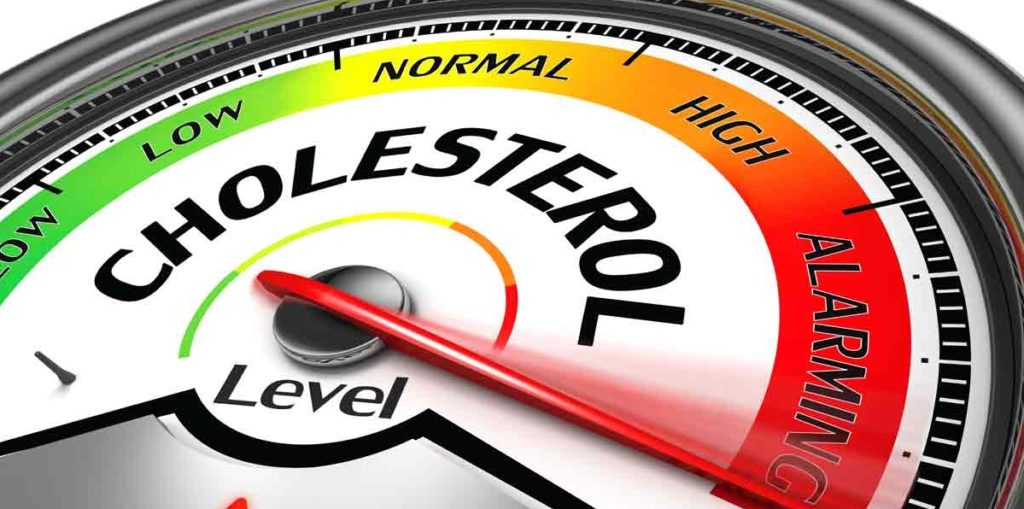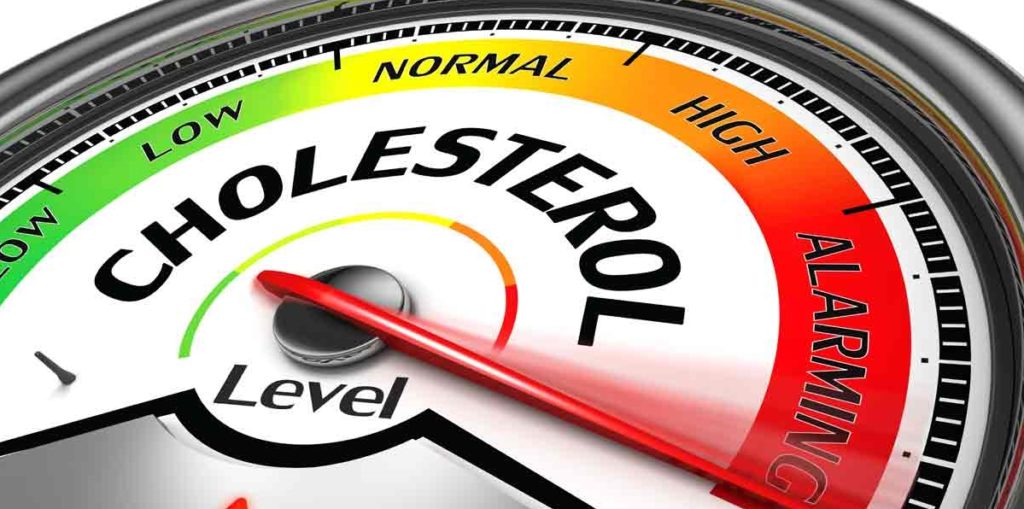What is cholesterol?
Cholesterol is a naturally occurring waxy, fat-like substance produced by the body’s liver and other cells and found in certain foods, such as dairy products, eggs, and meat.
The body needs some cholesterol in order to function properly. Its cell walls or membranes, need cholesterol in order to produce hormones, vitamin D, and the bile acids that help to digest fat. The body needs only a limited amount of cholesterol to meet its needs. When too much is present health problems such as heart disease may develop.

Types of Cholesterol
Cholesterol travels through the blood attached to a protein—this cholesterol-protein package is called a lipoprotein. Lipoproteins are classified as high density, low density, or very low density, depending on how much protein there is in relation to fat.
- Low Density Lipoproteins (LDL): LDL, also called ‘bad’ cholesterol, can cause build-up of plaque on the walls of arteries. The more LDL there is in the blood, the greater the risk of heart disease.
- High Density Lipoproteins (HDL): HDL, also called ‘good’ cholesterol, helps the body get rid of bad cholesterol in the blood. The higher the level of HDL cholesterol, the better. If your levels of HDL are low, your risk of heart disease increases.
- Very Low Density Lipoproteins (VLDL): VLDL is similar to LDL cholesterol in that it contains mostly fat and not much protein.
- Triglycerides are another type of fat that is carried in the blood by very low density lipoproteins. Excess calories, alcohol, or sugar in the body are converted into triglycerides and stored in fat cells throughout the body.
Cholesterol and Heart Disease
When too much cholesterol is present, plaque (a thick, hard deposit) may form in the body’s arteries narrowing the space for blood to flow to the heart. Over time, this build-up causes hardening of the arteries (atherosclerosis) which can lead to heart disease.To understand what happens, think about how a clog forms in the pipe under a kitchen sink. Like the build-up of grease in the pipe, the build-up of cholesterol narrows your arteries and makes it harder for blood to flow through them. It reduces the amount of blood that gets to your body tissues, including your heart.
When not enough oxygen-carrying blood reaches the heart, chest pain – called angina – can result. If the blood supply to a portion of the heart is completely cut off by total blockage of a coronary artery, the result is a heart attack. This is usually due to a sudden closure from a blood clot forming on top of a previous narrowing.
What causes high cholesterol?
Many things can cause high cholesterol, including:
Diet. Eating too much saturated fat, trans fat, and cholesterol-packed food items can raise your overall cholesterol levels.
Weight. In addition to being a risk factor for heart disease, being overweight can increase your cholesterol.
- Being inactive.
- Age—cholesterol starts to naturally rise after age 20.
- Family history, if family members have or had high cholesterol, you may also be prone.
- Diabetes. Poorly controlled diabetes increases cholesterol levels.
- Other causes—certain medications and medical conditions can cause high cholesterol.
How is cholesterol measured?
Your cholesterol levels are measured by a blood test. There are several kinds of tests – a simple cholesterol test, a direct LDL test, and a fasting cholesterol test.‘High cholesterol’ is considered a measurement of 240 or above; ‘borderline-high’ is considered at 200 to 239; and ‘best’ levels are considered less than 200.
It’s recommended that you have your cholesterol levels tested at least yearly, along with your annual physical. The tip I give all my clients is to use your birthday as the reminder to book your annual blood tests (a bit like change your clocks, change your smoke alarm batteries). In this way you’ll never forget. Cholesterol can be a silent killer, so don’t neglect your health, be sure to have your annual tests.
What can you do?
Your best option is to live and maintain a healthy lifestyle to keep your cholesterol levels in check. Because cholesterol levels tend to increase with age, paying attention to diet and exercise is even more important as you get older.
If you have high cholesterol, you should look at treatment options to lower your risk of heart attack and stroke. The main treatments are lifestyle changes, supplementation, and medication. Even with the medication option, some lifestyle changes are important and recommended for everyone with high cholesterol.
Check out the tips to the right for easy ways to improve your ‘cholesterol’ health.

